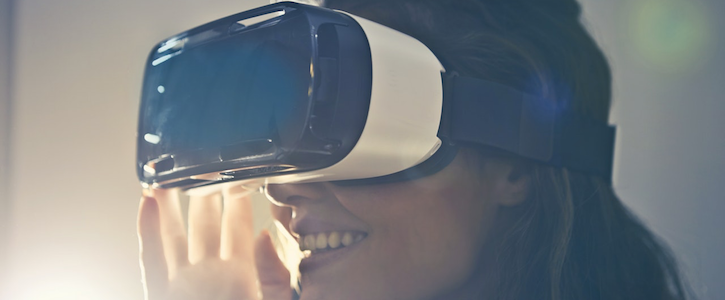Virtual Reality Leads the Week: Top 5 Stories in Health Tech
What’s going on with VR, machine learning for dementia detection and Fitbit?

When healthcare stakeholders discuss virtual reality (VR), the conversation tends to go one of two ways: The technology is either a savior or pure hype. But judging from the top two Healthcare Analytics News™ stories of the past week, it’s likely that the truth is somewhere in between. Behavioral health, in particular, seems to be an area that could benefit from VR, but developers still have a lot of work to do before these solutions become widespread.
>> READ: How Apple Brings Health Records to the Smartphone
While the VR issue gripped our audience enough last week to top our most-read list, other stories from healthcare’s bleeding edge also got industry leaders and innovators clicking, thinking and talking. From machine learning and Fitbit’s business moves to a bad month for data breaches, this article contains our most popular articles from the past week. Consider it your passport to some of the best news and views that we can offer.
Got thoughts? Did our readers miss the bigger stories that unfolded? Or did we overlook an interesting angle in our coverage? Let us know on Twitter, Facebook, or LinkedIn.
1. VR Is Helping Solve Schizophrenic Auditory Hallucinations
For patients with schizophrenia, life can be daunting. Imagine hearing malicious, disembodied voices. What’s even more discouraging: Existing treatments don’t help roughly 25 percent of people with psychotic conditions.
But a new therapy in the clinical trial pipeline could change everything. AVATAR Therapy virtually personifies the voices in a patient’s head through a software program, pushing patients to face their fears. And guess what? It’s working — perhaps better than anyone ever thought possible.
2. VR Could Automate Psychiatric Care Delivery, Extending Help to Millions
VR has also shown promise in helping people overcome their fear of heights. Even better, patients using this technology seem to fare better than those who engage in face-to-face therapy. Although the solution is still under development, Oxford University researchers believe it and similar innovations can transform mental health.
And patients are feeling the early benefits. “It definitely pushed the limits in terms of what I thought I would be able to achieve, and then got me to go past that,” one person said.
3. How Primary Care Data and Machine Learning Can Detect Dementia
For about half of people with dementia, the condition goes undetected, a problem that poses a major barrier to treatment. But a new study suggests that machine learning can help identify dementia more accurately than humans.
Using data from 25,000 patients, researchers built a machine-learning model that accurately classified patients with dementia 84 percent of the time. What’s more, the tech pinged five people who had dementia but had not yet received a diagnosis. What does this mean for the future of dementia care and the world at large?
4. Fitbit Expands Health Plan Footprint Through Blue Cross Blue Shield Deal
When Apple overtook Fitbit in the wearables market, the dethroned king had to make some big moves. And it did.
Over the past year or so, Fitbit has struck a number of deals with health insurance companies, health systems and other organizations. Its increased focus on enterprise health could prove a shot in the arm, which could be bolstered by a secondary campaign centered on clinical data.
The big point: Fitbit is making strides forward.
5. With 860K Affected Patients, July Among Worst Data Breach Months of Year
Last month was a rough one for data breach reporting. The federal government handled 31 data security incidents for healthcare, with nearly 860,000 patients put at risk. But what did most of the damage? We can point to three major lapses, all with different causes and effects.
Get the best insights in healthcare analytics directly to your inbox.
Related
FDA Approves Marketing of First mHealth Solution for Contraception
Researchers Crowdsource 10K Algorithms, Expanding Epileptic Seizure Prediction